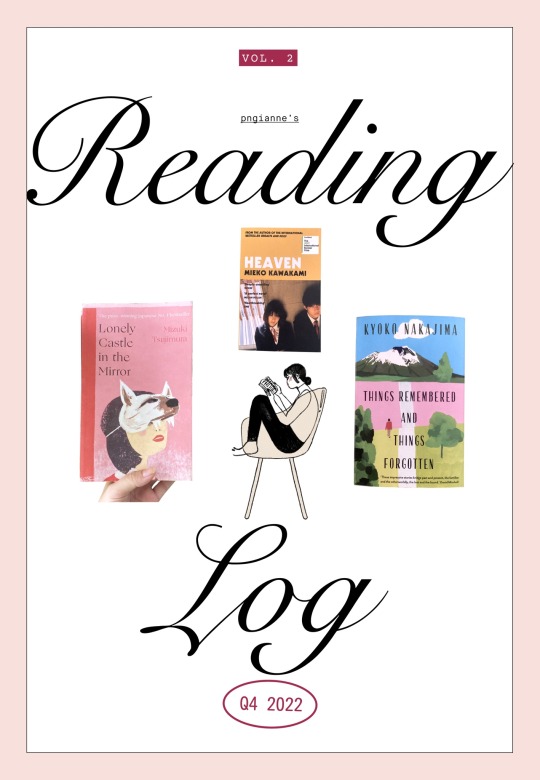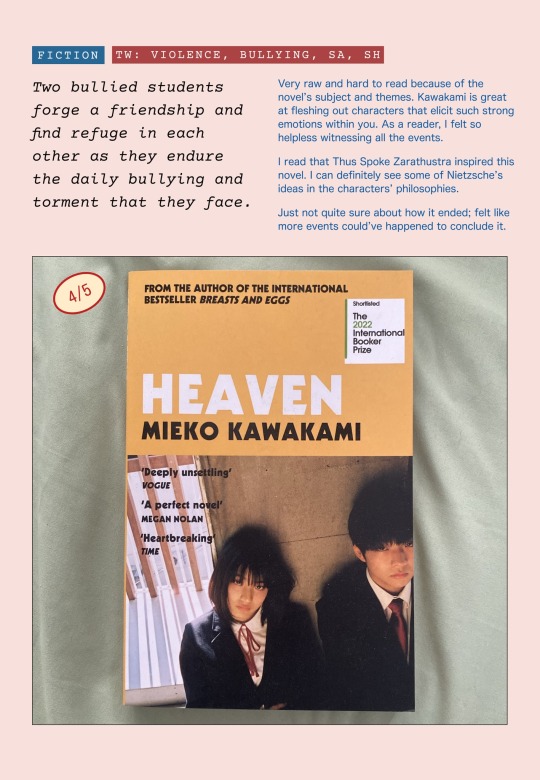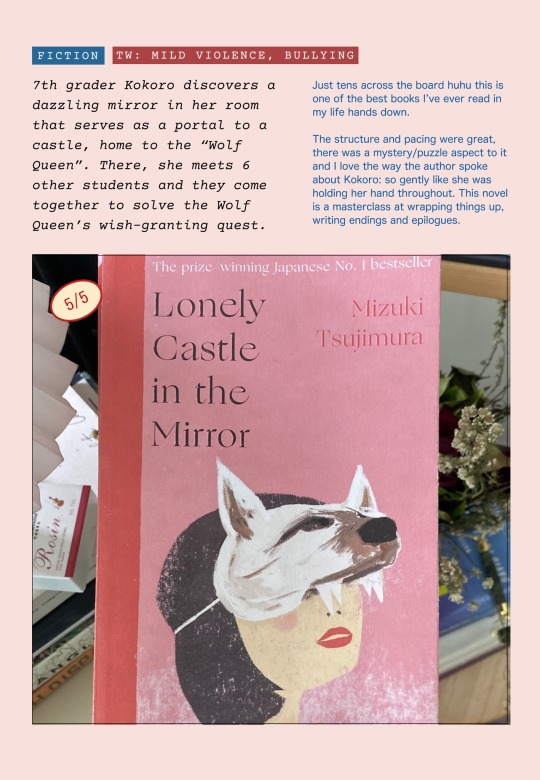#reading log
Text
just finished reading america's first civil war: the mormon rebellion 1847-1848 and HOOOOOOO BOOOOOOOOOYYYYYYYYYY has my understanding of 1800s america been shifting recently
394 notes
·
View notes
Text

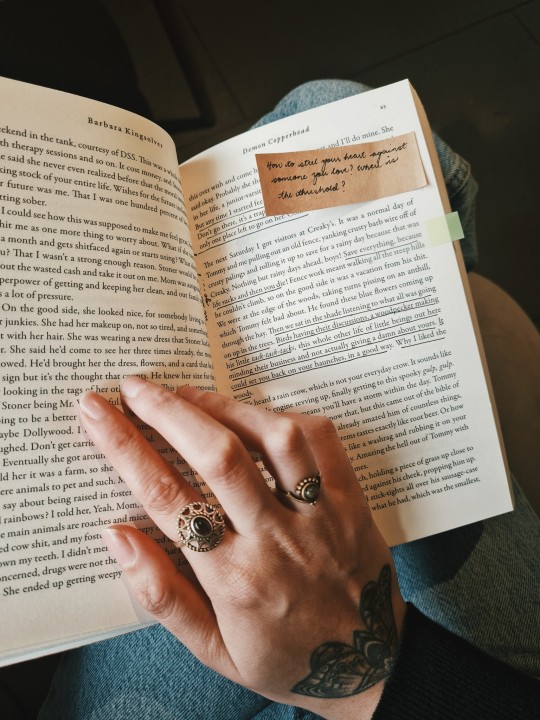
03.02.2024 // learning to be alone with my thoughts.
progress through Demon Copperhead has been slow but so far, I've been enjoying it immensely (no surprises there because Kingsolver is a brilliant writer).
#studyblr#academia#barbara kingsolver#demon copperhead#studyblr community#studying#reading log#study blog#studyspo
320 notes
·
View notes
Text
2024 Reading Log, pt 2
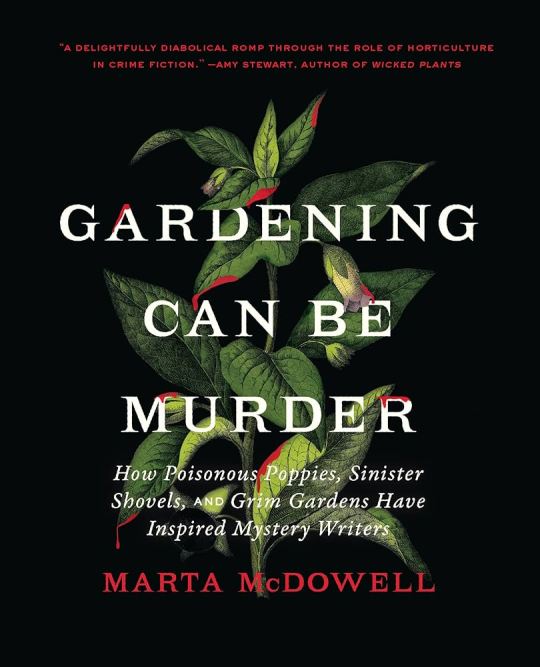
006. Gardening Can Be Murder by Marta McDowell. I honestly thought that this book was going to be about something else. With the subtitle “how poisonous plants, sinister shovels and grim gardens have inspired mystery writers”, I thought it was going to be about, you know, that. True crime themed to gardens, discussions of poisonous plants, that sort of thing. The book is actually about the mystery books that have gardening as a theme. And while the author’s dedication to not spoiling anything (seriously, anything, even 150 year old stories like The Moonstone or “Rappacini’s Daughter”) is admirable in its own way, this leaves the book feeling like endless buildup without any payoff. Big fans of murder mysteries might enjoy this—especially the last chapter, which interviews writers about their gardens—but I found it more boring than anything else, and finished it only because it was very short.
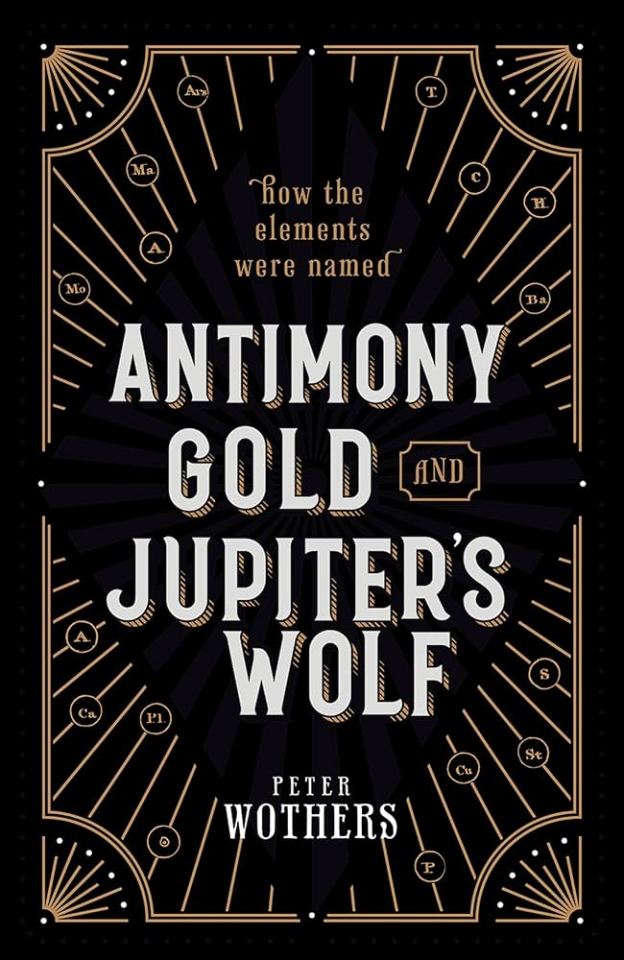
007. Antimony, Gold and Jupiter’s Wolf by Peter Wothers. This book is about how the elements got their names, and most of it deals with the early modern period, as alchemy transitioned to chemistry and then into the 19th century, when chemistry was a real science, but things like atomic theory were not yet understood. The book goes into fascinating detail, and has a lot of quotes from primary sources, as scientists then were just like scientists now, that is, opinionated and bickering with each other over their preferred explanations. And names! Many of the splits between elements and their symbols (like Na for sodium) are due to compromise attempts to appease two different factions with their preferred names. A book covering arcane minutia of history always has the risk of feeling like a slog, but this is a fast and fun read.
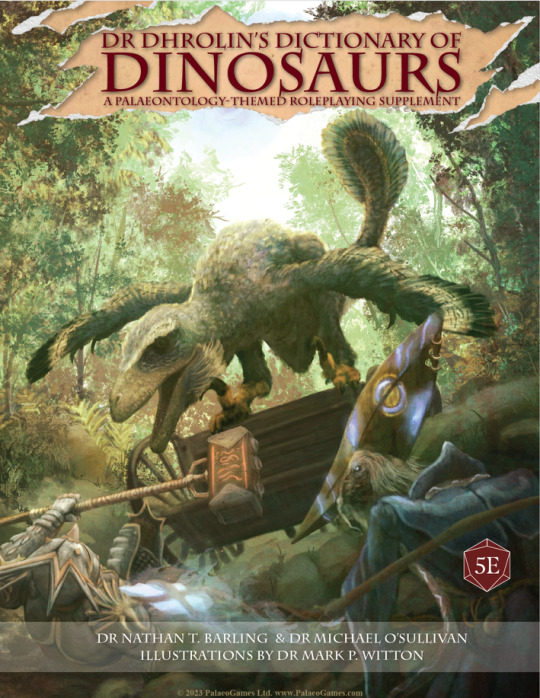
008. Doctor Dhrolin’s Dictionary of Dinosaurs by Nathan T Barling and Michael O’Sullivan, illustrations by Mark P Witton. This book is an odd concept, but one that I was immediately on board with—a D&D book written by paleontologists with the intention of bringing accurate and interesting stats for prehistoric reptiles to the game. The fact that it’s mostly illustrated by Mark Witton definitely clinched my backing that Kickstarter. And this book is a lot of fun. So much so, that I read it all in a single sitting. I don’t know how accurate the stats are (like, a Hatzegopteryx has a higher CR than titanosaurs or T. rexes), but they seem like they’d be fun in play, and the writing does a good job of combining fantasy fun with actual education. Even for someone not running a 5e game, the stuff on how to run animals as not killing machines, and the mutation tables, could be useful. There are multiple types of playable dinosaurs, all of which seem like they’d work well at the table and avoid typical stereotypes, and a lot of in-jokes and pop culture references (like the cursed staff of unspared expense, which looks like Hammond’s cane in the Jurassic Park movie).
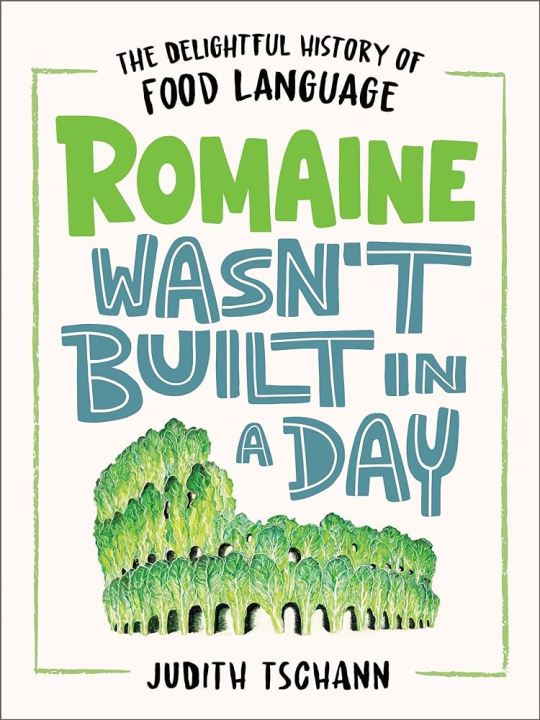
009. Romaine Wasn’t Built in a Day by Judith Tschann. I’m a sucker for books about etymology. And this one, on food etymology, is a pretty breezy read. I had fun with it, and it even busted some misconceptions that I had, etymologically speaking. Like, there’s no evidence that “bloody” as an explicative originated from “God’s blood”? Wild. Etymology books tend to be written in a sort of stream-of-consciousness style, where talking about one word may lead down a garden path to the next one. The book also has a couple of little matching quizzes, which is something I haven’t seen in a book since like the 90s.
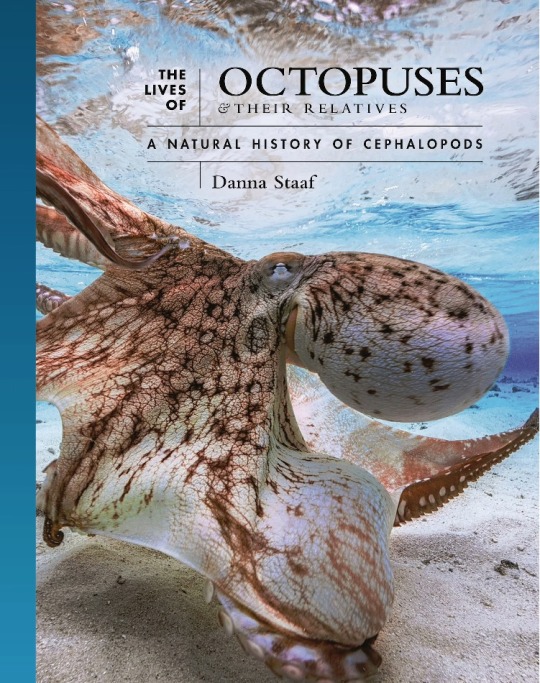
010. The Lives of Octopuses and their Relatives by Danna Staaf. I was previously a little disappointed in The Lives of Beetles, another book in this series, but I knew I liked Staaf, who wrote the excellent book Squid Empire about cephalopod evolution and paleontology. I’m pleased to report that this book is also excellent. Staaf takes the “lives” part seriously, and the book is arranged by ecology, looking at different marine habitats, the challenges that they pose to living things, and the cephalopods that live there. Cuttlefish get slightly short shrift in this book compared to squids and octopuses, but that’s about the biggest complaint I had. I like how the species profiles cover more obscure taxa, and information about the best studied (like Pacific giant octopus and Humboldt squid) is kept to the chapters.
#reading log#marine biology#cephalopods#etymology#food history#tabletop rpgs#dinosaurs#D&D 5e#chemistry#periodic table#history of science#mystery#horticulture
73 notes
·
View notes
Text
“Anna’s hysteria, the creature, the doppelgangers – all suggest a purification process that leads to a higher state of being akin to divinity. The awful other, when we grapple with it, can turn out to be not demonic, but gracious. “Do you believe in God?” she asks Marc. “It’s in me!” Though the word ‘God’ is thrown around a lot in the latter half of the film, conventional religion – at least in any contemporary sense – is a far cry from the grotesquerie of the creature. Instead, Anna’s relationship to divinity is based upon those non-rational elements that informed religion in earlier times – the mysterious, the uncanny, the awesome and terrifying. Just before the subway incident she visits a church, and as she cries out to the crucified figure above her, it lays silent and stationary and does not answer her whimpering pleas. It resists her projections of weakness, fragility, hopes, fears and fantasies. She is left to create her own idol, which becomes a thing both beauteous and monstrous.”
Kier-La Janisse, House of Psychotic Women
437 notes
·
View notes
Text
Fanfiction Reading Log
I did Fanfiction Reading Log to Google Sheets with really cool and neatly looking statistics and I thought it would be nice to share to everybody.
The list of updates and links to the update info post are in the end of this post.

Please mind that I'm still in the middle of testing it and I've found one bug I don't know how to fix it and I'm going to update as I find some mistakes, so you might be better to save also the link to the original file (it can be also found from Instructions sheet). I'm not professional with Excel/Google Sheets so all the feedback will be taken with huge thanks and I will do my best to fix every problem you might have, but just a warning: I have full time job, full time school and everything else going on in my life (for example huge fanfic I'm writing), so it might not be fast.
This is mostly for AO3 fanfics, but of course you can put there anything you want! I did this, because I have all the time time over 200 tabs open in my phone's browser and I'm still always trying to find something new to read, because "I don't have anything on my TBR". So yeah, here you go & if you have any ideas you would want to add there, you can also let me know that so I can think of it! :)
Update on March 12th: This is starting to look pretty good and I am going to update changes here, so please follow along if you want to know about updates. I'm trying to figure out some easy ways to keep people updated if they want to get some kind of notification when I've published new update.
Updates
Version 1.2 (March 12th, 2024) read more
62 notes
·
View notes
Text
Just thinking about hwdtw is basically about how you need to get in touch with your emotions and femininity, or perish
And how the only level-headed pov character is Ma who is sapphic and femme and whose compassion is what really helps the ppl around her to let go of old, harmful patterns and build something better instead
EDIT: This post was never meant to imply that being cis and sapphic is somehow superior to being trans or any of the other myriad expressions and identities the characters in the series have. I realize it probably comes off that way and I regret that. Linking this post for context and more nuanced takes.
96 notes
·
View notes
Text
Bo Ruberg: We Know The Devil is, as you say, about women who love other women, yet you've written online about being "against representation" in video games. What does that mean and how do you reconcile those approaches?
Aevee Bee: That article was a little manifesto. When I say that I'm "against representation," I mean that representation can't just be a list of identity categories. It's not really representation unless you're creating complexity; without complexity, characters feel insincere and incomplete. The dumbed-down version of a queer person, or the queer person that never expresses their sexuality--these characters don't actually require you to empathize with queer people, because these characters have no sexuality. When you erase that, you erase their anchor, their passion, their frustrations, or their flaws even, especially their flaws. You're not doing empathy work if you're not engaging with these things, because these are the stumbling blocks for empathy. Sometimes people are like, "I like gay people who don't act gay." You know? Those are the people you're catering to when you make those sorts of characters.
Identity is so important to talk about, yet it can be so limiting. I've been having a lot of discussions with queer activists and queer scholars about this desire to all call ourselves "queer," like we're this amorphous blob. That can actually be incredibly unhelpful because it doesn't acknowledge the very real differences that often exist between queer people. Our experiences are specific to our lives. Focusing only on identity, especially identity without experience, reduces everyone to an abstraction.
Ruberg: Given how much you value the specifics of individual queer experience, how would you describe the complexities, as you call them, of your own queer identity?
Bee: Being a woman is really important to me. Transness is also really important to me. In terms of sexuality, I tend to talk about how sexuality is practiced and understood rather than talking about specific attractions. What's the point of trying to say, "Oh, I have this very specific sexual identity" when sexuality is really hard to separate from gender identity and expression? Sexuality is more complicated than we often give it credit for.
For example, I'm less interested in saying "I identify as bisexual," than I am in thinking about the ways that I love women and the ways that I love men and how those are unfortunately incredibly different because of all these social pressures, my own histories, and my internalized baggage. How do we navigate that together with another person? What does a relationship with someone like me look like? it's one thing to be like, "We have this list of labels," but we have so few models for what those labels are supposed to look like.
"Aevee Bee: On Designing for Queer Players and Remaking Autobiographical Truth", in The Queer Games Avant-Garde: How LGBTQ Game Makers are Reimagining The Medium of Video Games (2020, Duke University Press)
#the queer games avant garde#aevee bee#we know the devil#bo ruberg#reading log#video games#interviews
105 notes
·
View notes
Text




The Lies of Locke Lamora, Scott Lynch
#things that make me a little bit crazy#reading log#gentleman bastards#the lies of locke lamora#locke lamora#jean tannen#q
212 notes
·
View notes
Text
I've been rereading the Temeraire series by listening to the audiobooks, which works out very well for me as I'm prone to skimming when the text gets dense, much to the detriment of my reading comprehension lol. At first, I was put off by Simon Vance's Temeraire voice because when I first read the books, Temeraire sounded so graceful, but I'll admit it's grown on me and I think it's so cute now lol like YEAH thats a creature right there.
Anyway I started listening to Black Powder War and due to the aforementioned skimming, I had forgotten how/when exactly Tharkay was introduced. So it was like
Narration: "a mysterious man has stormed in the room—"
me: wow i dont remember this part! a mysterious man, who could it be!!
Narration: "—with an eagle on his arm!"
Me: THARKAY THE MYSTERIOUS MAN?!?!!
#i listen on my commute and i was so surprised I shouted out loud in my car: THARKAY?!?#I DIDNT REALIZE HOW MUCH I MISSED HIM UNTIL HE SHOWED UP :D#I kinda wanted to liveblog more as i reread but i kept putting it off for the first 2 books lol#maybe ill do it retroactively#reading log#temeraire#rereading them dragon books
28 notes
·
View notes
Text
Incredibly baller accidental achievement: finished my page of reading log in my bullet journal on the same day that I finished the bujo 😎😎😎

22 notes
·
View notes
Text
Currently wading through the 'Speculum Duorum' by Gerald of Wales for uni which is basically a lengthy call-out post for his feckless nephew.
I would recommend reading if you're interested in 150+ pages of mediaeval whingeing interspersed with biblical quotations but frankly this is not Gerry at his best so I would advise sticking to the Descriptio Cambriae or De Instructione Principis.
However I do want to single out at least two of his comments about William de Capella (the feckless nephew's tutor and, according to your man Gerald- who totally isn't sore about it- a Rotter and a Bounder and a Cad of the Lowest Order) because they're kind of petty even by the standards of this text:

(Insert 'Are you wearing the chanel boots' meme here)

(Not the gumdrop buttons Lombard sword!)
#Like I see where Jezza's coming from and I'm sure this was a very trying and hurtful dispute when it happened but honestly#It's also a Bit Much#Gerald of Wales#Giraldus Cambrensis#reading log
13 notes
·
View notes
Text
last night I finally finished the novel Bloom by Delilah S Dawson, and i really really really love it. it's an F/F love story about a woman coming out of an abusive relationship experiencing horny at first sight for another woman, an ethereally beautiful and extremely talented cupcake/soap/plant/ceramics seller at the farmer's market, after always thinking she was straight. she's falling very hard & very fast, to the point of unhealthy obsession. but she doesn't realize just how mutual that obsession is.
i don't want to give any more details than you could get from the cover, because it ruins everything. but let me just say this exceeded my expectations. this is truly something i'd only ever expect to read in the worst, most disgustingly enjoyable kind of visual novels AND I LOVE IT. and it's only 200 pages long, go read it.
22 notes
·
View notes
Text
2023 Reading Log pt 7
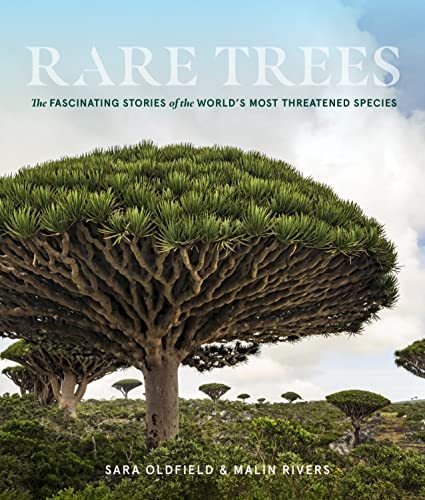
31. Rare Trees by Sara Oldfield and Malin Rivers. OK, so apparently that whole “less books about plants” pledge didn’t take. In my defense, this book is really pretty. It’s also very good; it’s about efforts for tree conservation around the world, and is published both as a public report and a fundraiser for the Global Trees Campaign. If you want to know what boots on the ground conservation work is like, its successes and its challenges, this is an excellent resource. And, like I said, the photographs are very pretty. The first chapter is about the overall history of forest conservation, and then future chapters discuss trees categorized by uses and by phylogeny. Honestly, I kind of wish they had picked one or the other of those organization schemes instead of splitting the difference, but that’s a quibble.
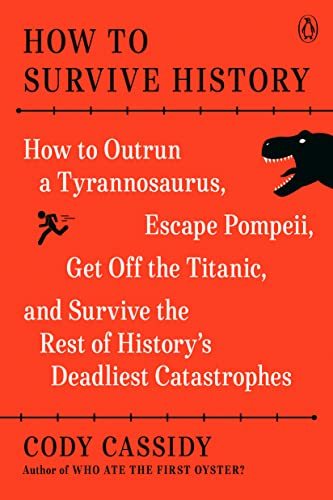
32. How To Survive History by Cody Cassidy. I’ve recommended some of Cassidy’s other books before (Who Ate the First Oyster? and …And Then You’re Dead), so I’m happy to report that this is his best yet. The theme is, what does science and the historical record tell us about how you could survive various catastrophes, or just hostile environments? I knew I was going to like it from the first chapter, How to Outrun a T. rex, which treats dinosaurs as just animals rather than kill crazy monsters. It also does an excellent job of summarizing Very Bad Times like the Donner Party expedition and the Magellan circumnavigation, and I learned a lot (like about how Magellan’s slave Enrique was the first person to actually circle the globe, having been captured by slavers in the Philippines and then being brought back around… and getting his revenge when he wasn’t freed as Magellan’s will proclaimed).
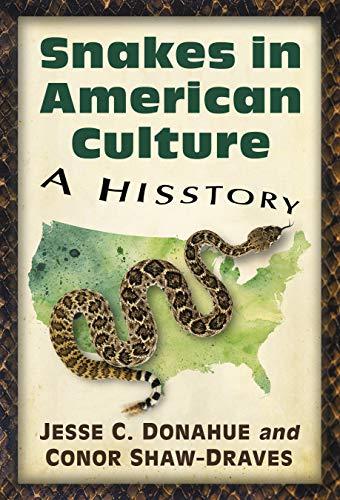
33. Snakes in American Culture: A Hisstory by Jesse C. Donahue and Conor Shaw-Draves. I didn’t expect this to be a searing indictment of the American medical profession of the early 20th century when I started the book, so that was a pleasant surprise. The first half or so is the story of how (white, upper class, male) “experts” denied that venomous snakes in the USA were really all that dangerous, while people (mostly poor, ethnic minorities and children) were dying in large numbers. Antivenin was only developed in this country as a side effect of the United Fruit Company’s desire to keep laborers from dying in the fields from snakebite, and the development of said antivenin was mostly done by volunteer labor and then marked up for tremendous profit by pharmaceutical companies! The back half, unfortunately, isn’t nearly as good, although it doesn’t go full conversion with its fairly sympathetic portrayal of snake handlers (which is something I’ve run into before). My biggest complaint is that this was written by humanities professors, and they needed a trained biologist to go over their draft. For example, they can’t format scientific names correctly, and don’t know enough about the history of science to understand that “virus” and “venom” were used interchangeably by some authors in the 19th century.
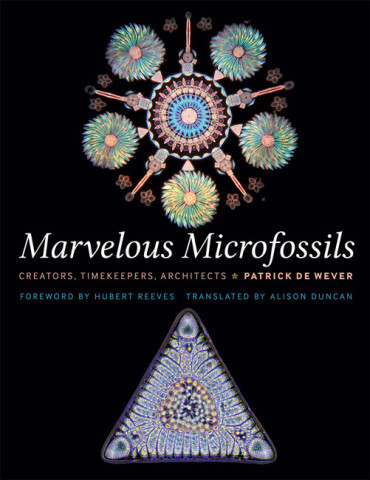
34. Marvelous Microfossils by Patrick De Wever, translated by Alison Duncan. Worst book I’ve finished this year? I think so. This book was originally written in French, but I can’t blame its problems on translation issues. It’s about plankton and other microfossils, what they can tell us about geology and how they’ve influenced art and culture. To start with the good, the book is gorgeous; each page is well organized, and it has lots of electron micrographs, photos and engravings by Ernst Haeckel. And that’s the first problem. The author seems to be a modern devotee of Haeckel’s science and philosophy, when both were full of garbage (Haeckel is the “ontogeny recapitulated phylogeny” guy, and one of the codifiers of scientific racism). His use of terminology is stuck firmly in the 19th century, and he doesn’t seem to care about modern cladistic phylogeny at all. And he has lengthy quotes from architects and philosophers instead of, you know, modern scientists, including lines specifically about how “we understand all there is to know” about plankton from like 1910. So I get huge “reject modernity, embrace tradition” vibes from this author, and that makes my skin crawl.
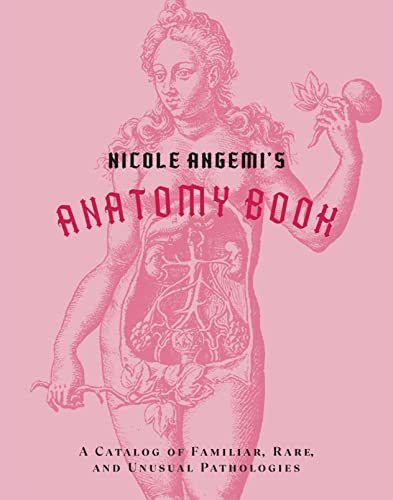
35. Nicole Angemi’s Anatomy Book by Nicole Angemi. Another “searing indictment of the American medical system”, only this one is more modern. The book is a loosely A-Z collection of pathologies, with case histories and photos. So this one is super gross, just a head’s up. Why I say it’s a searing indictment is that about 1/3 of the case studies talk about how the patient was ignored by their doctors initially, and had to spend time seeking second opinions taking them seriously, and how a number of things that could have been fixed more easily turned into huge, life altering (or ending) problems. The book is written by a pathologist’s assistant, and the introduction/biography would make a good “see, you can follow your dreams and get a career that you love later in life” inspirational story. I’m keeping a copy of this for my classroom, because I have plenty of students who are interested in medicine but not necessarily medical school, and because teenagers love gross pictures. Seriously, some of the descriptions of cysts and tumors made even my stomach turn.
#reading log#anatomy#medical history#snakes#herpetology#paleontology#plankton#botany#ecology#conservation#trees#world history
73 notes
·
View notes
Text
François Raynal was a very pious man, having experienced a revelation his first night at sea, on December 23, 1844, at the age of just fourteen years and five months. As the land on the horizon disappeared, and “the limitless sea surrounded me; the celestial vault was for the first time displayed before my eyes in all its vastness; I was plunged everywhere into the Infinite.”
Joan Druett, Island of the Lost: Shipwrecked at the Edge of the World
#ALSO. I am still on my age of sail bullshit#consider once more the universal cannibalism of the sea#hold up I gotta find the matching moby dick quote to this one#reading log
167 notes
·
View notes

